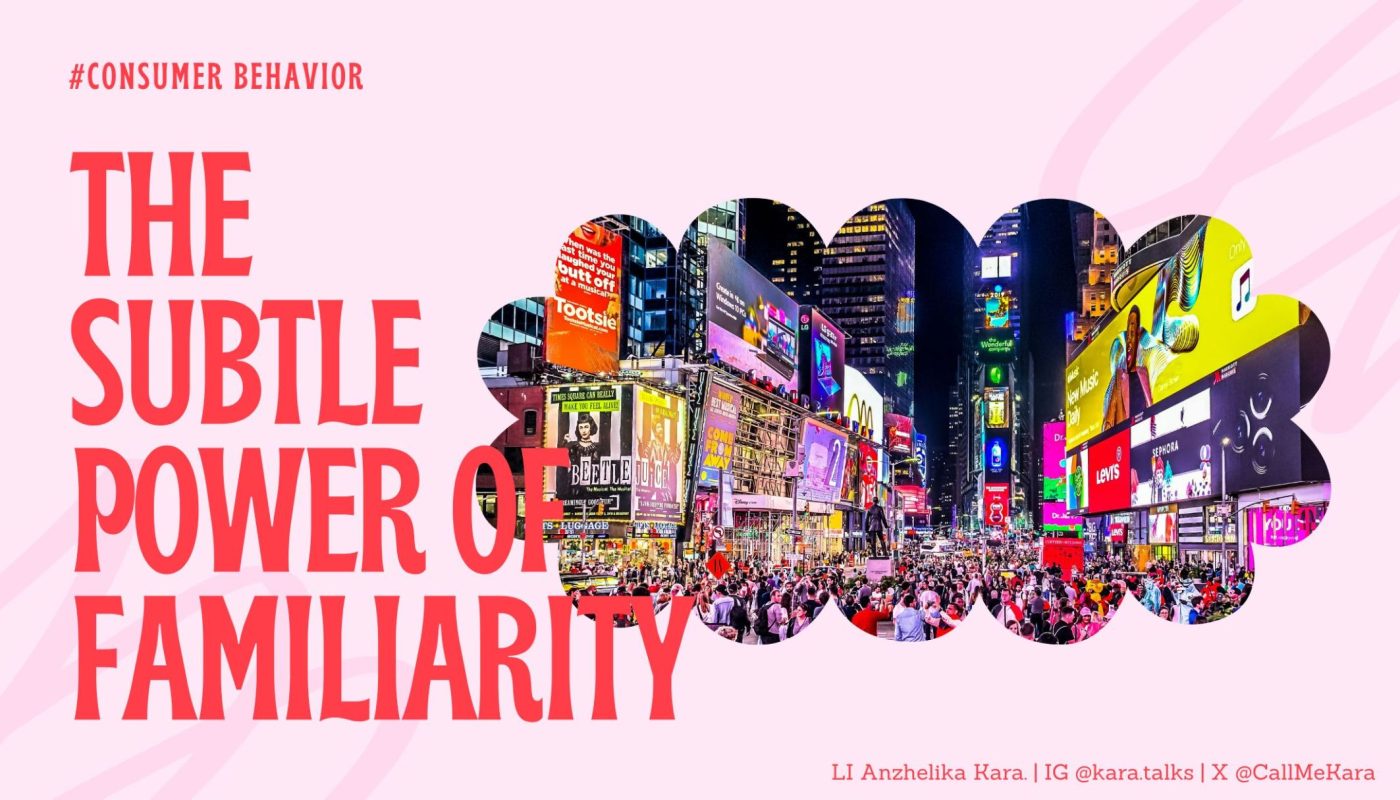In the fascinating world of consumer behavior, a simple yet powerful principle holds significant power: the more we are exposed to a product or brand, the more we tend to like it, and consequently, the more likely we are to buy it. This article explores how exposure influences consumer behavior, examines the role of digital marketing in capitalizing on this concept, and discusses the importance of ethical marketing practices.
Understanding Exposure’s Psychological Underpinnings
The mere exposure effect, a psychological phenomenon, reveals a direct relationship between repeated exposure to a stimulus and an increased preference for it. This concept is intriguing not just for its psychological implications but also for its practical application in marketing and advertising. Research by Stafford & Grimes (2012) and Ruggieri & Boca (2013) has shown that recognition and familiarity with a brand or product, achieved through direct exposure or nuanced product placement, significantly boost consumer preference. These findings highlight the influence of memory and recognition on our preferences, suggesting that our purchase decisions are often subtly guided by brand familiarity.

Digital Marketing: An Arena of Unlimited Exposure
The digital era has created an expansive platform for the mere exposure effect to thrive. Social media, online advertising, and content marketing provide unique opportunities for brands to become visible to potential consumers. Research, such as the studies conducted by Li & Wu (2014) and Mattke et al. (2020), demonstrate how digital platforms not only ensure visibility but also enable social endorsement through herding behavior and word-of-mouth. These studies reveal how the digital landscape enhances the impact of exposure by combining it with social proof, thereby making products seen online more attractive through virtual endorsements.
Here, Amazon’s approach to customer engagement is a great example. Amazon employs strategies such as personalized recommendations, targeted emails, and a user-friendly interface to ensure that customers are frequently exposed to their products and services. This constant interaction fosters familiarity and trust, encouraging customers to return and make repeat purchases.
The Ethical Considerations of Marketing in the Exposure Era
The effectiveness of using exposure in marketing cannot be overstated; however, it also raises questions about ethical marketing practices. The essence of ethical marketing is to leverage this principle without manipulating consumer choices or infringing upon their privacy. It involves using exposure to inform and engage consumers ethically, focusing on transparency, relevance, and enriching the consumer experience. By fostering genuine connections and providing valuable content, marketers can ethically utilize the power of exposure.
Looking Ahead: Finding the Ethical Balance
The challenge for marketers moving forward is to find the optimal balance between utilizing the mere exposure effect and adhering to ethical marketing principles. This requires continuous innovation in brand-consumer interactions, ensuring that exposure goes hand in hand with quality and value. Moreover, a deeper understanding of the psychological mechanisms behind the mere exposure effect can lead to more effective and responsible marketing strategies.
Conclusion
The mere exposure effect provides a compelling insight into the psychological drivers of consumer behavior. Its application in marketing, particularly in the digital sphere, underscores the influence of visibility and familiarity in shaping purchasing decisions. However, wielding this power requires a commitment to ethical engagement with consumers, ensuring their freedom of choice and enhancing their overall experience. By navigating these challenges with care, marketers can effectively use exposure to cultivate brand preference and loyalty in an ethical and lasting manner.
For more insights on Digital and Ethical Marketing please follow me on my social media:
LinkedIn – Anzhelika Kara.
Twitter – @CallMeKara
Instagram – @Kara.Talks
References:
Doe, J. (2024, March 29). Understanding the Mere Exposure Effect. Varify. Retrieved from https://varify.io/en/blog/mere-exposure-effect/
Li, X., & Wu, L. (2014). Herding and Social Media Word-of-Mouth: Evidence from Groupon. Sociology of Innovation eJournal.
Mattke, J., Maier, C., Reis, L., & Weitzel, T. (2020). Herd behavior in social media: The role of Facebook likes, strength of ties, and expertise. Inf. Manag., 57, 103370.
Stafford, T., & Grimes, A. (2012). Memory Enhances the Mere Exposure Effect. Psychology & Marketing, 29(12), 995-1003.
Richter, F. (2023). Ahead of the Game: Nike Rules the Sneaker World [Chart]. Statista. Retrieved from Statista
Ruggieri, S., & Boca, S. (2013). At the Roots of Product Placement: The Mere Exposure Effect. Europe’s Journal of Psychology, 9(2), 246-258.




Thank you Kara for sharing this article with loads of interesting points. Looking forward to reading the next one and keep up the good work!
Dear Thila a big thenk you for your feedback and support!
Fantastic read, Anzhelika! Your detailed analysis of the mere exposure effect and its influence on consumer behavior was incredibly enlightening. I particularly appreciated how you tied in real-world examples like Nike and Amazon to illustrate the practical applications of this psychological phenomenon. It’s also commendable how you addressed the ethical considerations in digital marketing, a topic that is becoming increasingly important as our digital interactions grow. Your piece not only deepens understanding but also sparks important discussions on the balance between effective marketing and ethical practices. Thanks for sharing these insights!
Elizaveta, it is a pleasure reading your feedback. Very glad to produce work that inspires engagement and sparks a conversation!